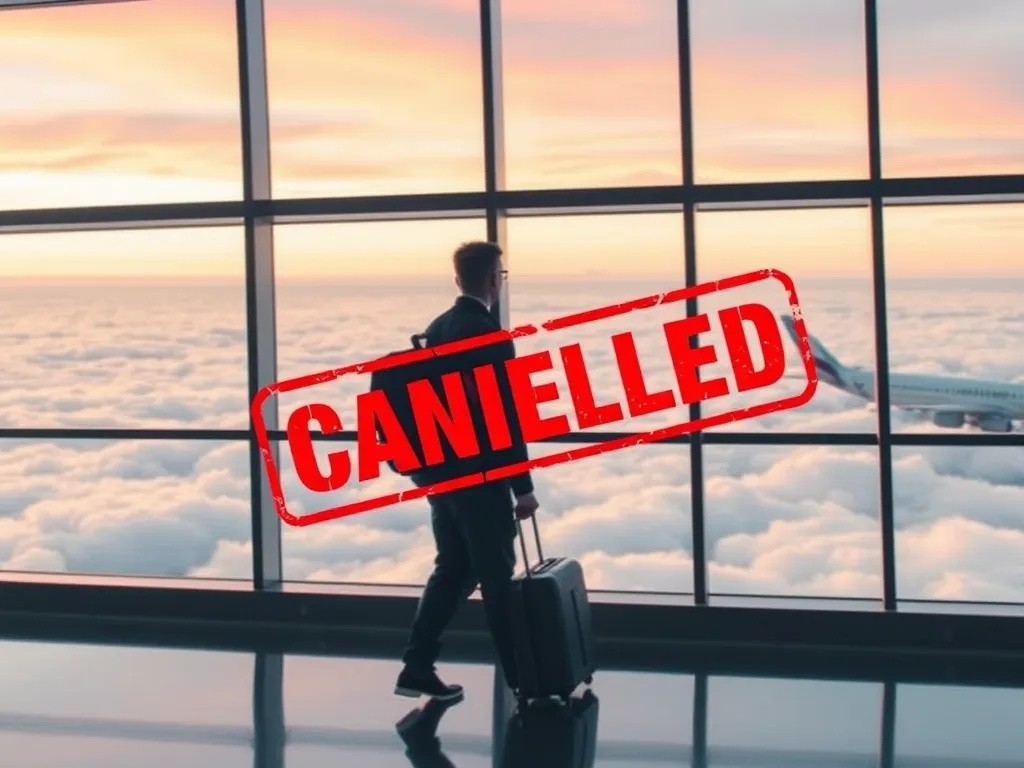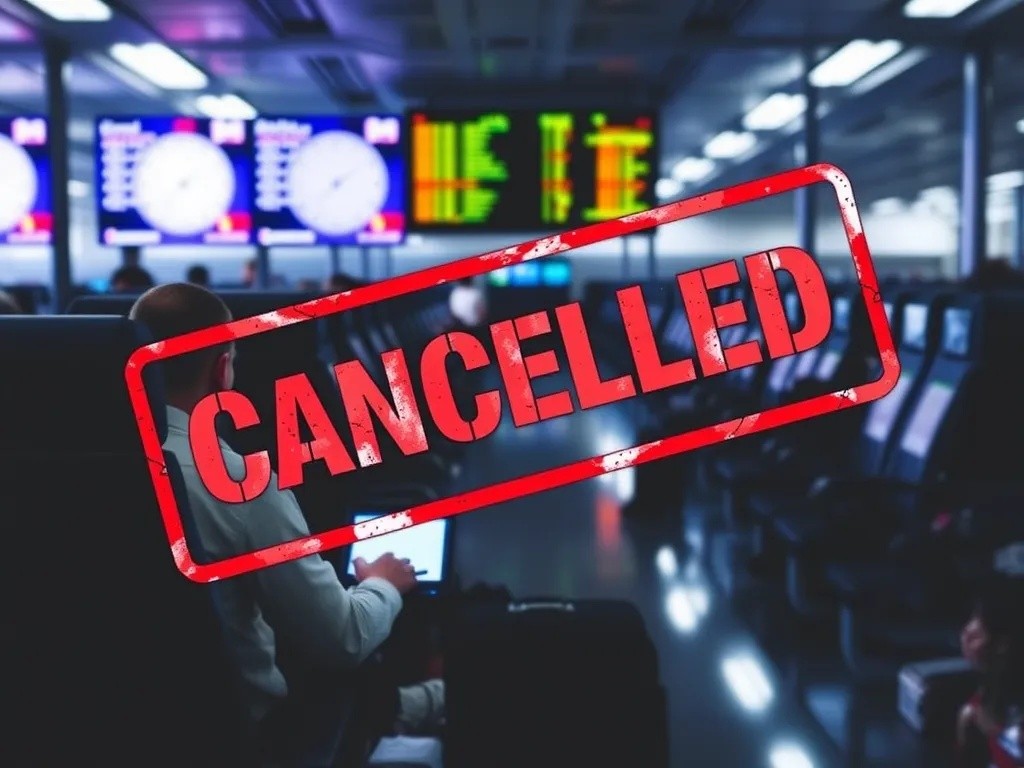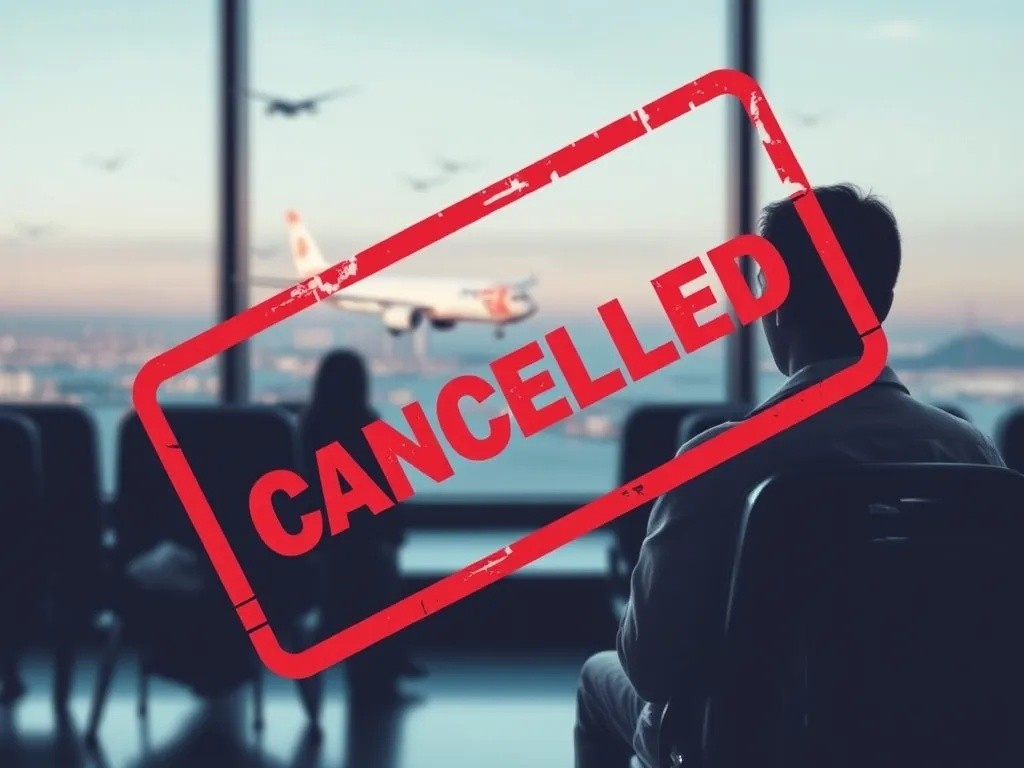Flight cancellations are among the most stressful travel experiences, leaving passengers stranded and uncertain about their next steps. Understanding the process that unfolds when your flight gets canceled can help you navigate the situation more effectively and protect your rights as a passenger.

The Immediate Aftermath of a Flight Cancellation
When an airline cancels your flight, several things happen simultaneously behind the scenes. The airline's operations center immediately begins working to minimize disruptions by rebooking passengers on alternative flights. Gate agents receive notifications and prepare to handle the influx of affected travelers seeking assistance.
You'll typically receive notification through multiple channels: email, text message, phone call, or the airline's mobile app. However, if you're already at the airport, you might first learn about the cancellation from gate announcements or departure board updates.
Initial Passenger Rights and Protections
Your rights during a flight cancellation depend largely on your location and the airline's policies. In the United States, airlines are required to provide full refunds for canceled flights, but additional compensation varies by circumstances. European Union passengers enjoy stronger protections under EC 261/2004 regulation, which mandates compensation for certain cancellations.
Common Reasons for Flight Cancellations
Understanding why flights get canceled helps explain the different outcomes and passenger rights that apply:
- Weather conditions: Severe weather, including thunderstorms, snow, ice, or fog that makes flying unsafe
- Mechanical issues: Aircraft maintenance problems or equipment failures that require repair
- Crew availability: Insufficient crew members due to illness, scheduling conflicts, or duty time limitations
- Air traffic control: Airport congestion, runway closures, or system-wide delays
- Security concerns: Threats, suspicious activities, or enhanced security protocols
- Operational decisions: Airlines consolidating flights or adjusting schedules for efficiency
What Airlines Must Do When They Cancel Your Flight
Rebooking and Alternative Arrangements
Airlines have specific obligations when canceling flights. They must attempt to rebook passengers on the next available flight at no additional cost. If no same-day alternatives exist, they should offer the earliest possible departure on subsequent days. Some airlines will also book passengers on partner or competitor airlines if their own flights are unavailable.
Refund Policies and Procedures
All passengers have the right to a full refund if they choose not to travel due to a cancellation. This includes the unused portion of round-trip tickets. Airlines must process refunds within specific timeframes: seven business days for credit card purchases and twenty days for cash or check payments in the United States.

Compensation and Additional Benefits
Compensation varies significantly based on the cancellation cause and your location. Weather-related cancellations typically don't qualify for additional compensation beyond rebooking or refunds. However, cancellations within the airline's control may entitle you to more substantial compensation.
EU Passenger Rights
European regulations provide the strongest passenger protections. Under EC 261/2004, passengers may receive compensation ranging from €250 to €600 depending on flight distance and delay length, unless the cancellation results from extraordinary circumstances like severe weather or security threats.
US Passenger Protections
While US regulations don't mandate compensation for cancellations, the Department of Transportation requires airlines to clearly state their policies. Many US carriers voluntarily provide meal vouchers, hotel accommodations, or transportation for lengthy delays caused by airline factors.
Immediate Actions to Take When Your Flight Is Canceled
Acting quickly when your flight gets canceled can significantly improve your rebooking options and overall experience:
- Contact the airline immediately: Call customer service while simultaneously approaching gate agents for faster assistance
- Use the airline's mobile app: Many airlines allow rebooking through their apps, often faster than waiting in line
- Consider nearby airports: Check if alternative airports within reasonable distance have available flights
- Document everything: Take photos of cancellation notices, save email confirmations, and keep all receipts
- Know your rights: Understand what compensation or accommodations you're entitled to receive
Long-term Consequences and Follow-up Actions
Filing Compensation Claims
If you believe you're entitled to compensation, file claims promptly. Airlines typically have specific timeframes for claim submissions, and gathering documentation early improves your chances of success. Keep detailed records of expenses incurred due to the cancellation, including meals, accommodation, and transportation costs.
Credit Card and Travel Insurance Benefits
Many credit cards offer trip protection benefits that may cover expenses related to flight cancellations. Similarly, travel insurance policies often include coverage for trip delays and cancellations. Contact your credit card company and insurance provider to understand available benefits and claim procedures.

Prevention and Preparation Strategies
While you can't prevent flight cancellations, you can minimize their impact through strategic planning. Book morning flights when possible, as delays tend to compound throughout the day. Consider purchasing flexible tickets that allow changes without penalties, and always have backup plans for critical travel.
Joining airline loyalty programs can provide priority rebooking and customer service access during disruptions. Additionally, downloading airline apps and enabling notifications ensures you receive timely updates about flight changes.
Conclusion
Flight cancellations are disruptive but manageable when you understand the process and your rights. Airlines have specific obligations to rebook passengers or provide refunds, and additional compensation may be available depending on circumstances and regulations. By acting quickly, documenting expenses, and knowing your rights, you can navigate flight cancellations more effectively and potentially receive appropriate compensation for your inconvenience.
Remember that while cancellations are frustrating, airlines generally work to minimize passenger impact. Understanding the system helps you make informed decisions and advocate for yourself when travel plans go awry.
